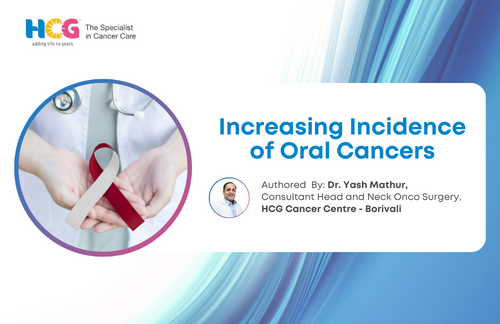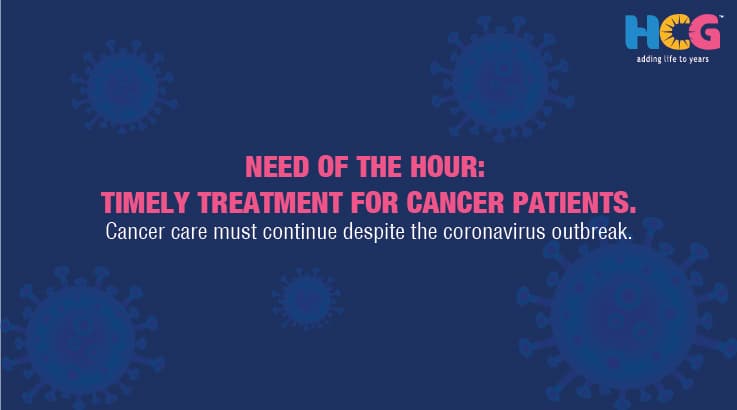
09 May, 2023

09 May, 2023
Oral cancer is one of the most common cancers in India. – India Times, 2023
More young people are becoming victims of head & neck cancer: Experts. – Tribune India, 2022
A surge in oral cancer cases due to tobacco consumption, say doctors. – Indian Express, 2022
India sees 1 million deaths due to oral cancer every year. – Hindustan Times, 2019
Not just tobacco, alcohol too top driver of oral cancer: new research. – Tribune India, 2022
These news reports from the last three years say one thing: India’s battle with oral cancer is a serious one.
Oral cancer can affect anyone; however, certain lifestyle habits can increase its risk. In this article, let’s see the reasons behind the increasing incidence of oral cancers, their impact on health, and what can be done to reduce the risk of oral cancer.
Oral Cancer in India
Several studies from the past few years have shown that South Asia, especially India, reports the highest number of oral cancer cases. Some reports have even called India, "The Oral Cancer Capital of the World".
In India, oral cancer is the second most common cancer, according to Globocan 2020 reports. Dr. Yash Mathur, a leading Head and Neck Surgical Oncologist with HCG Cancer Centre Mumbai, Borivali, says that its also the leading cause of cancer-related deaths in men in our country. According to the Indian Council of Medical Research, there were over 1,30,000 registered new cases of oral cancer reported in India in 2020. Dr. Mathur notes that the majority of these cases were reported in men, with a higher incidence among those over 40 years of age. The ratio of new cases is heavily loaded in favour of the male population.
Possible Causes for the Increasing Incidence
Increasing incidence is alarming for sure; however, it is important to know that these numbers are linked to some lifestyle-related risk factors that can be controlled. Dr. Yash has listed the below causes be main reasons for the increasing incidence:
Tobacco Consumption: The biggest risk factor for oral cancer in India is tobacco consumption. It is estimated that around one-third of the countrys population uses tobacco in some form or the other. This includes the smoked form of tobacco i.e., smoking cigarettes, bidis, and hookah, as well as the smokeless form i.e., chewing tobacco and pan masala. Typically, the pan or gutkha is kept in the cheek and chewed or sucked for 15–30 minutes, with some users keeping it overnight. In India, tobacco use occurs early in life through imitation of family members or peers. It is also sold freely at local shops with poor implementation of government guidelines.
Alcohol Consumption: Alcohol consumption is another significant risk factor for oral cancer. In India, alcohol consumption is on the rise, particularly among younger populations. Heavy drinking and binge drinking are associated with an increased risk of developing oral cancer. It has been found that those who consume alcohol simultaneously with tobacco have the worst outcome and have the highest chances of developing oral cancer. This is mainly because of the synergistic action of alcohol and tobacco together leading to increased leaching out of carcinogens from the tobacco and thus potentiating their action.
Environmental Factors: In addition to lifestyle factors, environmental factors may also play a role in the increasing incidence of oral cancer in India. Dr Yash Mathur says that exposure to certain viruses, such as human papillomavirus (HPV) are also responsible for oral malignancy. HPV-induced oral & oropharyngeal cancer incidence is on the rise mainly due to changes in sexual preferences and habits. It is found to be more common in the population that practises oral sex. Poor nutrition and chronic irritation from poorly fitting dentures or other oral appliances may also contribute to the development of oral cancer.
Lack of awareness, Negligence, and Indirect advocacy: Lack of awareness and education about oral cancer may also be a contributing factor to the increasing incidence. Many people may not recognise the signs and symptoms of oral cancer and therefore do not seek early diagnosis and treatment. Additionally, the negligent attitude towards personal health and the stigma associated with cancer and its treatment are also contributing to the increased risk of oral cancer and poor prognosis among the Indian population.
Role models especially those actors and influential members of society that promote brands associated with tobacco and paan masala manufacturers are known to have a significant impact on the minds of youngsters in society, Dr. Yash says that this is one of the lesser known but definite causes of youngsters falling prey to oral cancer.
Overall, the increasing incidence of oral cancer in India is a complex issue with multiple contributing factors. Addressing these factors through education, prevention, and early detection is crucial to reduce the burden of oral cancer in the country.
Importance of Oral Cancer Awareness and Oral Cancer Screening
Dr. Yash Mathur says that the sad reality of our country is that more than 70% of oral cancer in our country is diagnosed in the advanced stage. He adds that more than half of them don’t survive more than 2 years due to delays in the diagnosis and treatment. He says that firstly, raising awareness about oral cancer and its risk factors is crucial so that oral cancer can be diagnosed at an early stage. An advanced-stage oral cancer often demands more complex treatment planning as it would have spread to other parts of the body. By increasing awareness about oral cancer, people can learn to recognise the early signs and symptoms and seek medical attention promptly. This can significantly improve the chances of successful treatment and recovery.
Dr. Yash Mathur, along with his team, conducts regular screening for suspected oral cancer patients and those in the high-risk category in the region of Mumbai. Early detection is the key to successful treatment outcomes hence he has operated on thousands of early-stage oral cancer patients with successful and good quality-of-life outcomes. He believes that it is important because it can help detect this condition in its early stages or pre-cancerous stage. When it comes to screening, there are self-oral cancer screening and clinical oral cancer screening. Self-oral cancer screening can be done at home, where one checks their oral cavity for ulcers, lesions, white or red patches, swelling, bleeding gums, swelling in the neck, etc., which are some of the common symptoms of oral cancer. For clinical oral cancer screening, one must visit their dentist or general physician, who will look for the signs of oral cancer, and if they find something abnormal, the individual will be referred to an oral cancer specialist.
Screening is particularly important for individuals who have a history of tobacco or alcohol use, as these are common risk factors for oral cancer. Additionally, individuals with a family history of oral cancer may also benefit from regular screening.
Winning Over Oral Cancer
The steady increase in oral cancer incidence is alarming for sure; nevertheless, we have path-breaking technologies and treatment approaches available today, and with these, it is possible for oral cancer patients to win over the disease and lead a normal and healthy life. That said, it is paramount for people to learn about oral cancer, the possible risk factors associated with it, and the measures that can be taken to reduce its risk, as these can help them put themselves a step ahead of oral cancer.
